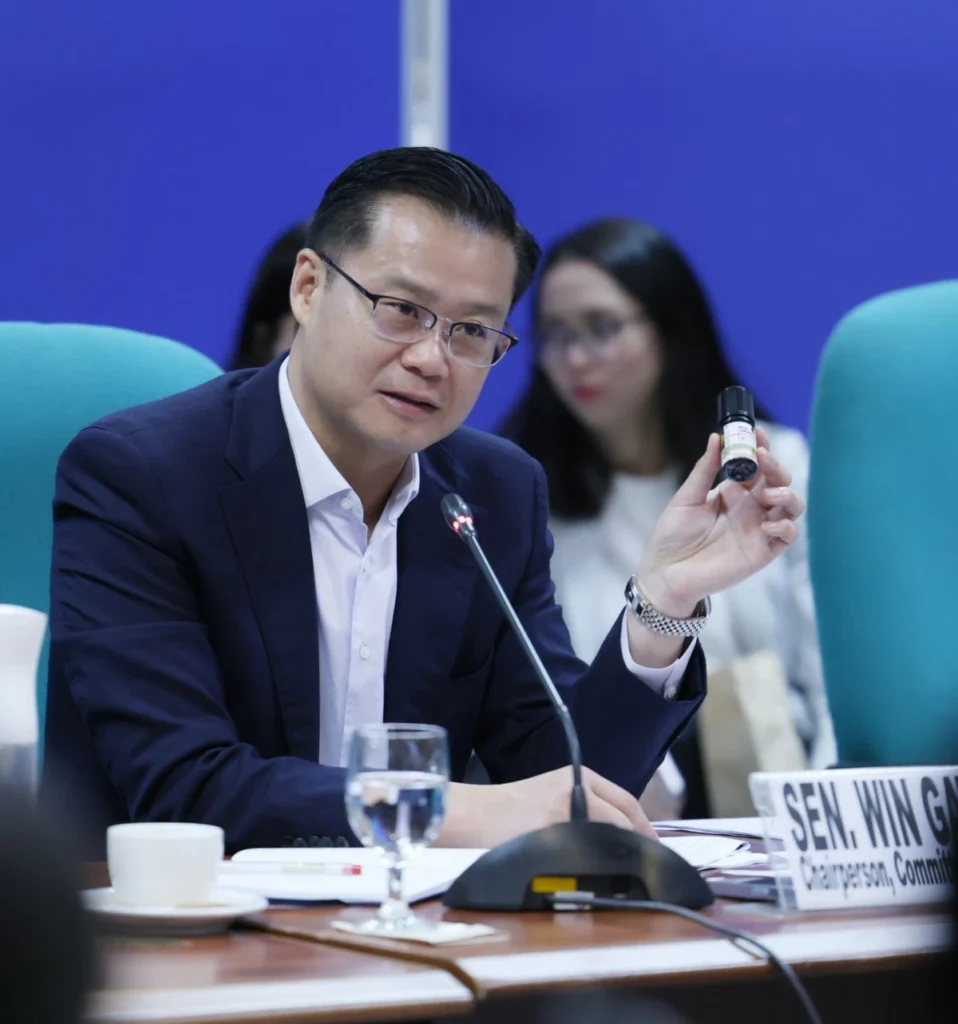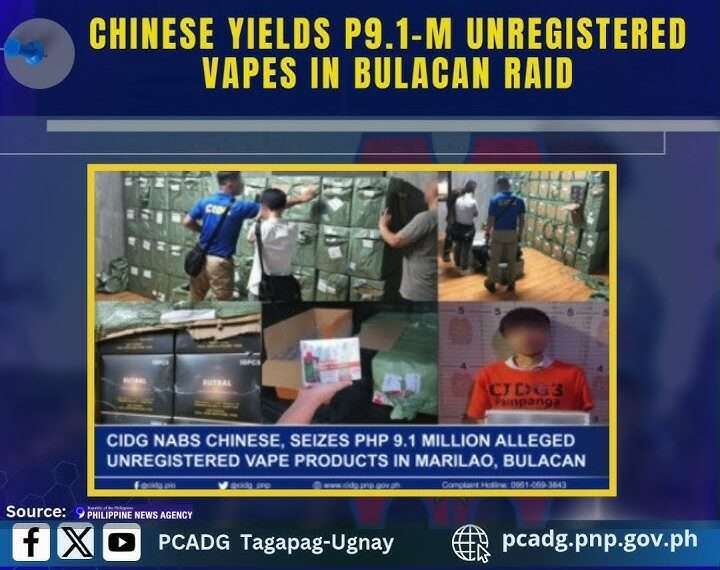Philippine Senate Weighs Higher Vape and Tobacco Taxes Amid Surge in Smuggling

Photo credit: Senate of the Philippines
MANILA – The Philippine Senate is grappling with proposals to significantly increase excise taxes on tobacco and vapor products, a move legislative leaders frame as a critical response to widespread smuggling and a notable rise in adolescent vaping. A recent hearing by the Senate Committee on Ways and Means, chaired by Senator Sherwin Gatchalian, centered on House Bill 11360, a measure aimed at amending the National Internal Revenue Code.
Senator Gatchalian emphasized the committee’s conviction that tax adjustments are necessary to combat the illicit trade. “The reason for that is that we don’t believe the solution to curbing illicit trade will come from reducing taxes,” he stated. He painted a stark picture of the current market, adding, “What is very prevalent right now is the smuggling of vaping products, and that’s already filtering down to our adolescent population.”
The proposed legislation outlines an initial tax of PHP41 per pack of heated tobacco (20 units) and PHP66.15 per milliliter of vapor products and cigarettes. These rates are designed to escalate automatically, rising by 2 percent every even-numbered year starting 2026, and by 4 percent every odd-numbered year until 2035. The bill also includes a provision that would empower the President to raise tax rates by up to 5 percent if the national deficit surpasses 2 percent of the gross domestic product.
A key element of the proposal, according to Senator Gatchalian, is the introduction of a single tax rate for all vapor products—encompassing both freebase and nicotine salt varieties—alongside an ad valorem tax on vaping devices. This unified approach, he suggested, is intended to deter consumption among younger demographics. “Imposing a single tax rate on vapor products and ad valorem tax on devices can curb the increase or hopefully eliminate the increase in the use of vape products among adolescents,” he said, pointing to nicotine salts, often found in imported products, as particularly appealing and accessible to youth due to their potent doses and affordability.
The committee’s discussions also illuminated persistent challenges in enforcing anti-smuggling laws. Despite 1,636 tobacco-related seizures reported by the Bureau of Internal Revenue (BIR) from 2023 to 2025, only a single case has reached a court decision. The Bureau of Customs presented a similarly concerning record, with just two court decisions out of 1,296 seizures documented since 2018.
“These numbers are unacceptable. This is why we need to enhance the enforcement capabilities of our agencies,” Senator Gatchalian asserted. Proposed reforms include bolstering interagency coordination, enabling local government units (LGUs) to participate in enforcement actions, adopting advanced product tracking technologies, and eliminating distinctions in penalties between domestically produced and imported untaxed goods. “This isn’t just about revenue. It’s also about protecting public health and ensuring that we don’t let smuggling undermine our laws and endanger our youth,” he added.
During the same hearing, Senator Pia Cayetano emerged as a vocal opponent of any efforts to reduce excise taxes on tobacco and vape products, warning such moves would jeopardize public health advances and reverse hard-won reforms. “Public health must never take a backseat to industry profits,” Ms. Cayetano declared, specifically referencing House Bill No. 11360 as potentially seeking to lower annual tax increases on what she termed “harmful products.”
A long-standing advocate for health policies, Ms. Cayetano cited a dramatic surge in youth vaping rates—from 3.2 percent in 2018 to 39.9 percent in 2023—and underscored the vital role of sin taxes in discouraging detrimental habits and funding the nation’s Universal Health Care program. She attributed what she termed the “vapedemic” to the 2022 Vape Law, which she argued rolled back critical protections she had helped establish under the Sin Tax Reform Act of 2020. “The goal has always been to protect Filipinos, especially the youth. We must not repeat past mistakes,” she concluded.
Industry representatives present at the hearing acknowledged the pervasive nature of the problem, estimating that as much as 70 to 80 percent of vapor products currently available in the market are illegal. Jethro Sabariaga, Assistant Commissioner for the BIR’s Large Taxpayers Service, proposed a “one government approach” to combat the spread of unregulated and untaxed vapor products across the Philippines. He noted an “uptick, upswing on activities, particularly on online activities, and on vape shops, on these illicit products,” based on recent intelligence reports.
Mr. Sabariaga described how sellers of illicit vape products often evade detection by displaying only registered products while conducting illegitimate transactions online or from clandestine residential warehouses. He cited a recent BIR raid where illicit, unregistered, and untaxed vape products were confiscated from a house being used as a warehouse. He suggested the creation of a dedicated illicit trade task force to consolidate government efforts.
Following the hearing, BIR Commissioner Romeo Lumagui Jr. issued a resolute statement emphasizing the government’s stance. “The people have a right to expect that their government will clamp down heavily on the bad actors of this business, rather than treat everyone lightly,” Mr. Lumagui said. He pledged intensified enforcement, declaring, “More enforcement will be forthcoming, and the BIR will adapt and go toe to toe against these criminals. This is a war for the welfare of Filipino teens. A war for the future of our country.”












